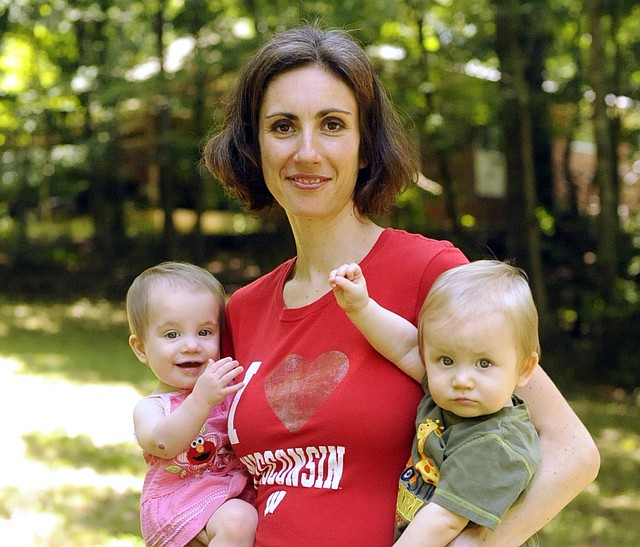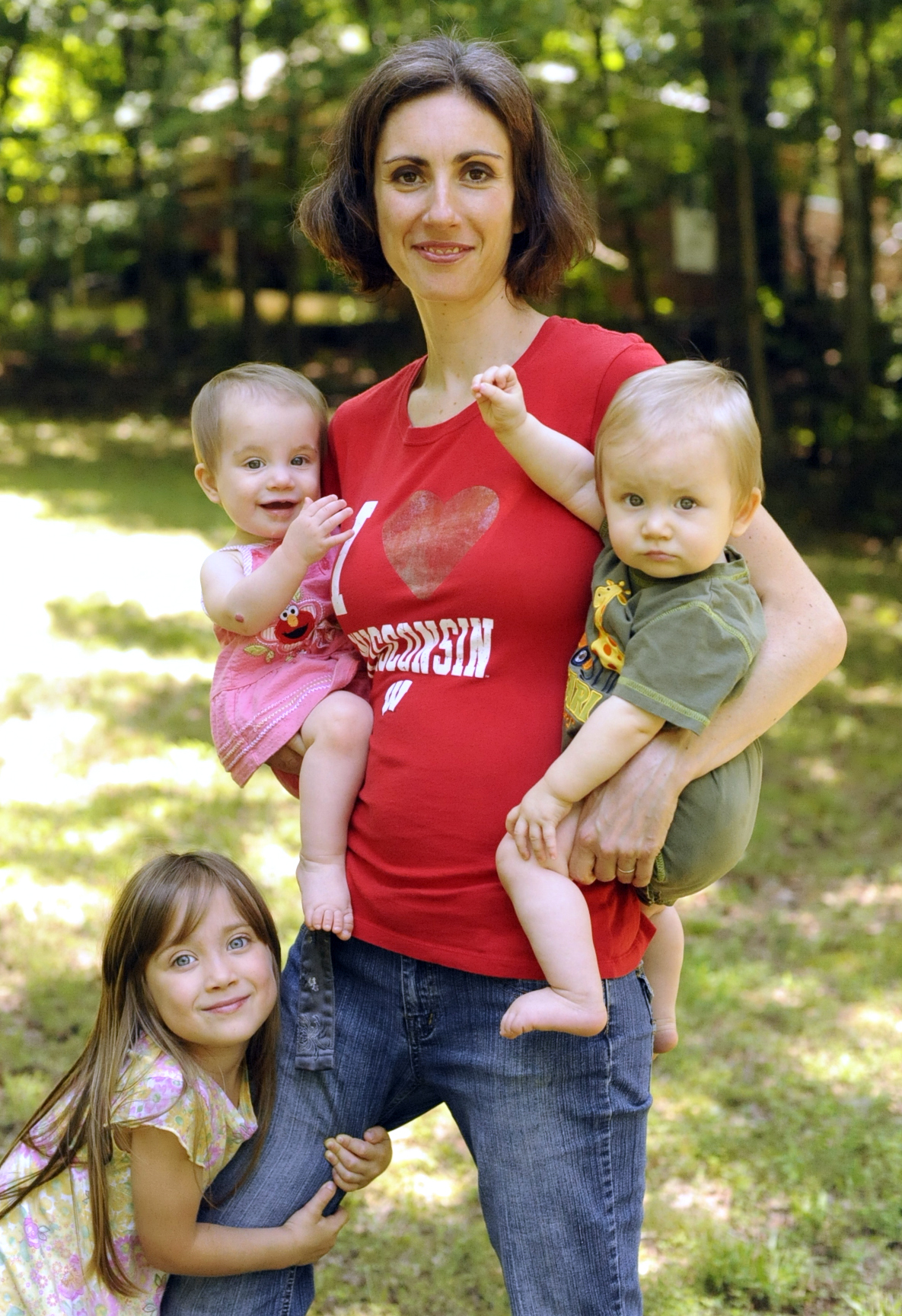Time magazine controversy sharpens debate about how long to nurse toddlers
Friday, January 1, 1904
If someone had told Ruthie Gray years ago that she would one day find herself nursing a 2-year-old, she would have been shocked.
"My mother-in-law nursed my husband until he was almost 2, and I remember hearing about that and being like 'oh man, that's weird,'" said Gray, 34.
But that's exactly what she ended up doing. Gray nursed her son Leland, now 3, until he was about 2 years old, she said, and is still nursing her daughter Hailey, 1.
"Once I was nursing my own baby," she said, "I realized it wasn't a big deal."
A recent cover story in Time magazine asked the bold question: "Are you mom enough?" The story was about attachment parenting, a parenting style that often includes extended breast-feeding. The magazine featured a controversial cover image: A woman breast-feeding her 3-year-old son as he stood on a chair, both of them gazing nonchalantly at the camera.
"I have several friends who were offended by the article," said Lindsay Ryan, a certified lactation specialist at Parkridge East Hospital. Her job, she said, is to educate mothers about breast-feeding and support them in the process.
"(Breast-feeding) is natural, and it is nutrition for your baby," she said.
The American Association of Pediatrics recommends breast-feeding exclusively for about six months, "followed by continued breast-feeding as complementary foods are introduced, with continuation of breast-feeding for one year or longer as mutually desired by mother and infant."
Tennessee has one of the lowest rates of breast-feeding in the nation, according to the government's Center for Disease Control and Prevention. Fewer than 30 percent of Tennessee infants are being breast-fed at six months old, according to the most recent statistics. In Georgia and Alabama, 30-40 percent of children are being breast-fed at six months. In some states -- mainly in the Pacific northwest -- the rate is over 50 percent.
Dr. Katherine Tun, a pediatrician with Front Porch Pediatrics in Ooltewah, said she agrees with the AAP's recommendation. Breast-feeding, she said, is the optimal choice for infants, nutritionally speaking. Nursers, she said, tend to have fewer illnesses, including ear infections, colds and digestive issues. Nursing releases oxytocin, a hormone that can increase feelings of wellness in the mother.
Still, she said, a baby can thrive on formula.
"It's certainly nutrition, most of the name brand formula has been well researched. They're trying all the time to simulate breast milk." This includes adding nucleotides, amino acids and prebiotics, Tun said.
The so-called "mommy wars" debates, she said, are largely about the bonding experience. "Moms who don't breast-feed can feel guilty about it," she said. "I emphasize that it's more important to nurture the baby, and that can still be accomplished through feeding with formula."
Cady Schulman said she does not feel guilty about giving formula to her daughter Lucy, 2. Breast-feeding was painful, she said, and she wasn't producing enough milk to satiate Lucy for long.
Schulman said she felt faced with a lot of "shoulds."
"All the proponents out there are so diehard and 'you have to do this or your kid's not going to turn out right.' To me, it feels like other moms judge you if you don't breast-feed your child."
But the "shoulds" weren't reason enough to keep going, she said. So after a few weeks, Schulman made the decision to discontinue breast-feeding.
"I enjoyed feeding my daughter formula. I enjoyed the fact that my husband got to participate. He enjoyed being able to feed her. I'm not going to judge women who exclusively breast-feed and say 'oh, your husband doesn't get to help.' There's no room for judgment here at all, on any side."
Still, people tend to have strong feelings about many parenting issues.
"People are very opinionated about parenting issues, more than political issues," said Jennifer Martin, 24.
Martin nursed her son for 10 months before he self-weaned. A self-described lactivist, she said it "broke my heart" to give up breast-feeding. She admits to being opinionated about breast-feeding, but said she's become less vocal about it since giving birth to Donovan, now 19 months.
"You can't be so devout about all the issues. You have to give a little," she said. "You need to be able to compromise. Not everyone will share your opinion and they probably have good reason for it."
Martin, who returned to work six months after Donovan's birth, said she plans to take a full year off when she has her next child in hopes of extending the period of nursing. She said she hopes to nurse for up to two years.
Angi Rademacher nursed her daughter Liesl, 4, until she was nearly two, and is currently nursing twins Seren and Crusoe, 11 months.
"People would say 'oh I can't imagine nursing that long' or 'I only did it for 3 months or 6 months,' but I never felt like anybody was annoyed at me for doing it for that amount of time," she said.
Breast-feeding, said Judie Misner, lactation consultant for Erlanger East Campus, "is a relationship and as such cannot be assigned an arbitrary ending age. Children mature at different rates."
"If mothers go beyond (a year) it is a choice for them," said Tun. "(Some) mothers do feel benefits from breast-feeding for prolonged periods of time, and that shouldn't need validation from the press or from science. If the mother feels benefit from it, we should take their word for it."
Contact Holly Leber at hleber@timesfreepress.com or 423-757-6391. Follow her on Twitter at twitter.com/hollyleber. Subscribe to her on Facebook at facebook.com/holly.j.leber.

